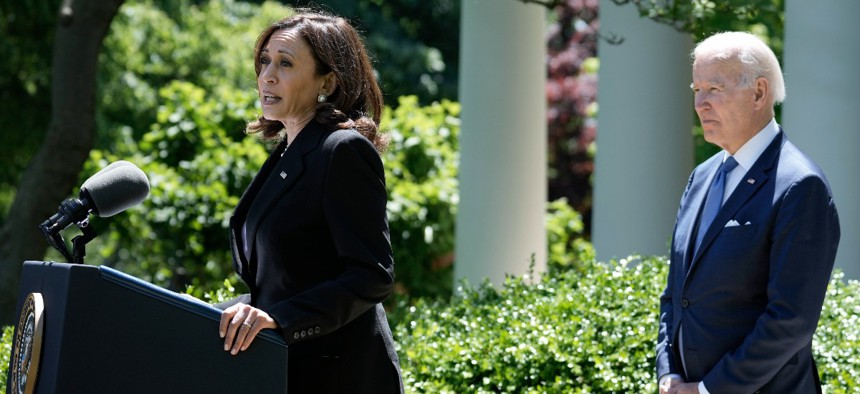Biden, Harris Unveil New Internet Connectivity Subsidies

Drew Angerer/Getty Images
The White House announced new federal credits for low income households to have access to high speed internet.
President Joe Biden and Vice President Kamala Harris announced new subsidies for high-speed internet connectivity would be provided to economically vulnerable households, part of the administration’s ongoing pledge to bridge the digital divide plaguing underserved communities in the U.S.
Discussing details of the Affordable Connectivity Program, Harris confirmed that if a member of any given household receives SNAP benefits, Medicaid, reduced-price school lunches or other federal subsidies, the household is eligible to receive a discount on its monthly internet bill.
Such attributes apply to roughly 40 percent of American households. Qualifying homes will receive a $30 monthly deduction on internet bill costs, with homes located on tribal lands eligible for a $75 discount.
“Today, more than 30 million people in our country do not have access to high speed internet, either because they live in communities where high speed internet is not easily available, or more often, because they cannot afford the cost of a plan,” Harris said. “In the 21st century. access to the internet is essential for success. Every person in our nation, no matter how much they earn, should be able to afford high speed internet and a high speed internet plan.”
Other qualifying conditions include a household federal income of double the federal poverty wage or less, which translates to roughly $55,000 a year for a family of four, or $27,000 in an individual household.
Access to high speed internet became a focal point on Biden’s federal agenda when the COVID-19 pandemic shifted learning and work to a remote online status. A lack of blanket internet capabilities nationwide hindered some individuals from accessing vital online resources.
Biden touted the collaboration between Republicans, Democrats and private sector firms in developing the ACP.
“High speed internet is not a luxury any longer. It's a necessity,” Biden said. He and Harris both mentioned previous federal investments in broadband connectivity development, specifically the $65 billion allocated to deployment across the country through the bipartisan infrastructure law.
The ACP works to support previous legislative initiatives for expanding broadband connectivity by offering support for homes that cannot afford the internet service, even if the infrastructure is available.
“Today too many families simply can't afford to get connected even if there's access to get connected,” Biden added. “Over the last few months, my administration has worked closely with internet providers. This is a case for big business stepped up [sic], urging them to cut their prices and raise their speeds.”
20 private internet providers have committed to working with the government on a $30 federal credit, including AT&T, Spectrum, Verizon, Frontier and Comcast. Biden noted that the ACP and other internet connectivity reforms will also promote competition between telecommunication companies and prevent company monopolies in certain geographical areas.
According to Biden, about 11.5 million American families have already enrolled in the ACP.
Other technological programs put forward by the Biden administration, including federal cybersecurity initiatives and 5G deployments, have hinged on public and private sector partnerships.






